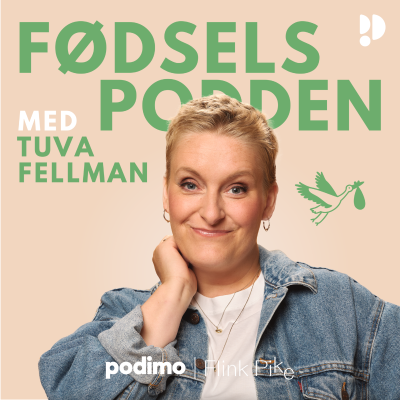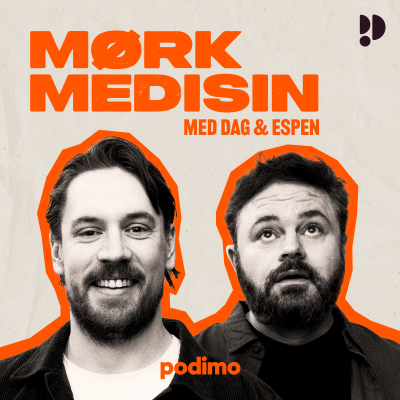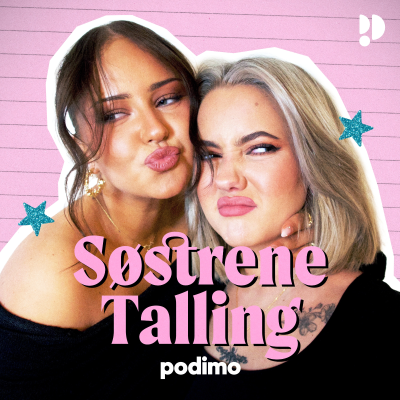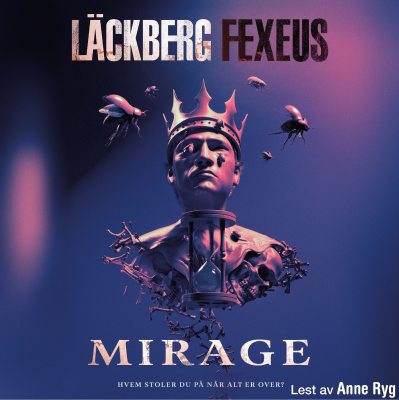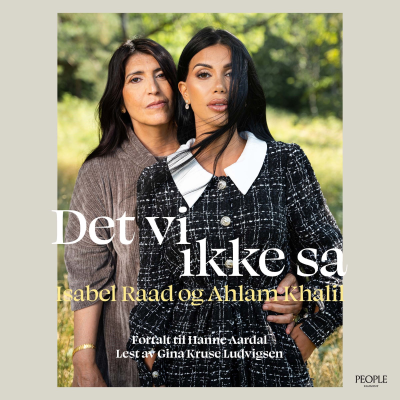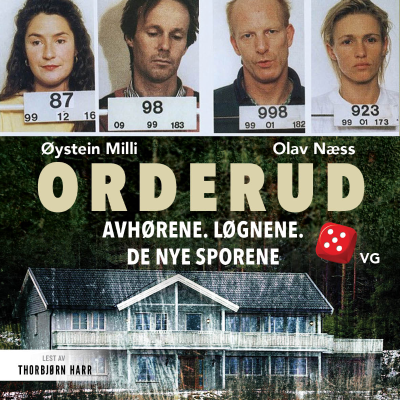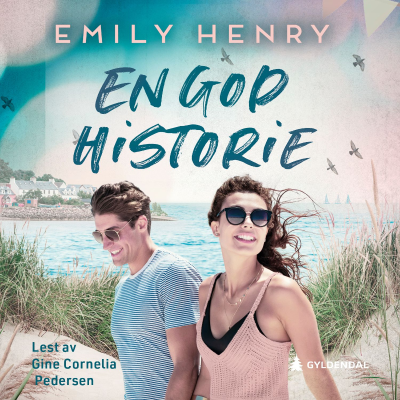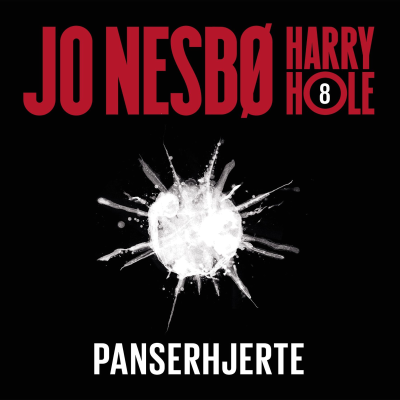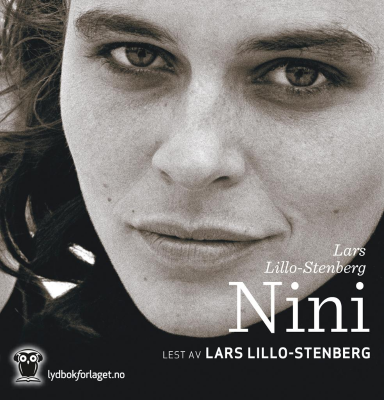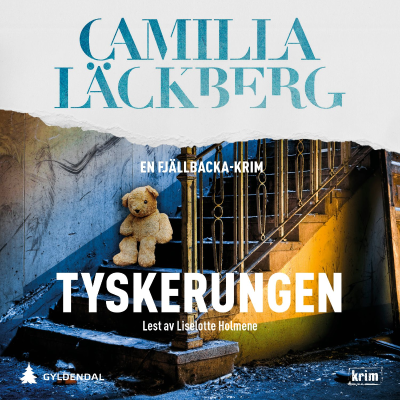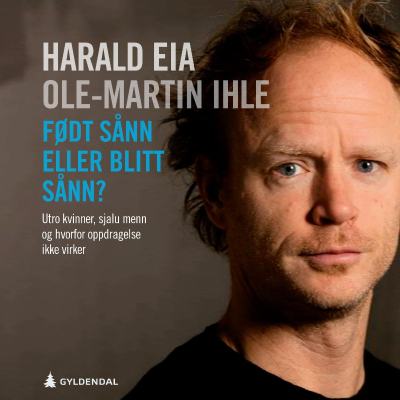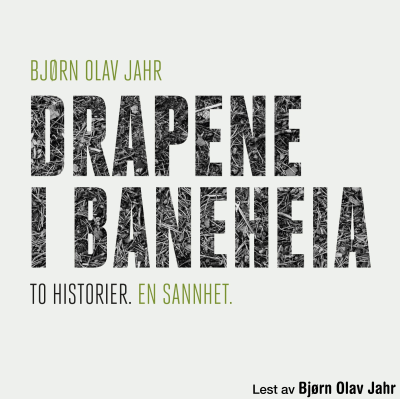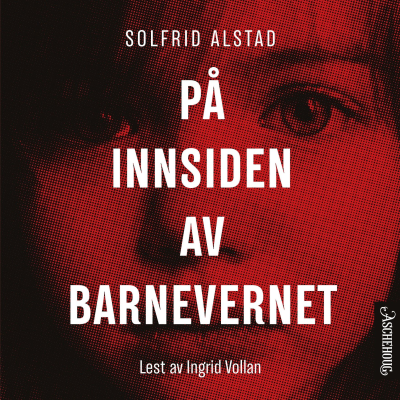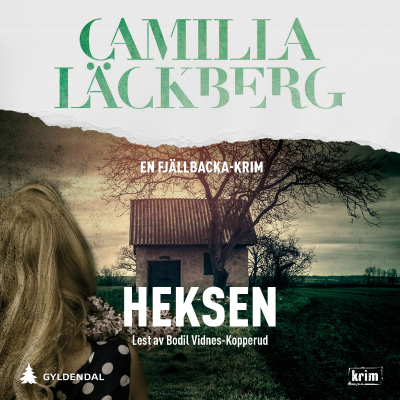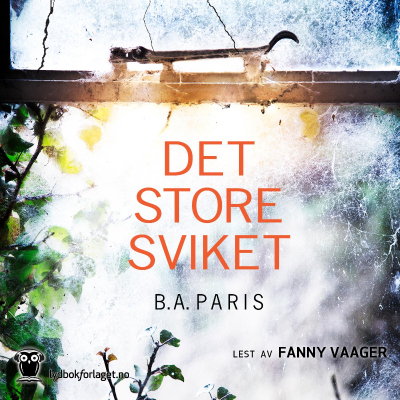
Wai? Indigenous Words and Ideas
Podkast av Arcia Tecun
Prøv gratis i 14 dager
99 kr / Måned etter prøveperioden.Avslutt når som helst.

Mer enn 1 million lyttere
Du vil elske Podimo, og du er ikke alene
Rated 4.7 in the App Store
Les mer Wai? Indigenous Words and Ideas
Hosted by Arcia Tecun, an urban and mobile Wīnak (Mayan) with roots in Iximulew (Guatemala), an upbringing in Soonkahni (Salt Lake Valley, Utah), and in relation with Tonga, Aotearoa (New Zealand), and Te Moana Nui a Kiwa (The Great Pacific Ocean). Wai? [pronounced why] (W.A.I.: Words and Ideas) is a podcast based on various issues, topics, and perspectives including critical analysis, reflection, dialogue, and commentary on society, politics, education, history, culture, Indigeneity, and more. The purpose of this project is to share words and ideas that are locally meaningful, globally relevant, and critically conscious.
Alle episoder
54 EpisoderThis episode begins by attempting to tackle some bigger questions about religion, belief, and spirituality. I share some different approaches to analysing religion using thinkers like Talal [https://dl1.cuni.cz/pluginfile.php/532537/mod_resource/content/1/Genealogies-of-Religion-Discipline-and-Reasons-of-Power-in-Christianity-and-Islam.pdf] Asad [https://anthro.du.ac.in/e-resources2020/rpm/Anthropological%20Conceptions%20of%20Religion.pdf] and Émile [https://monoskop.org/images/a/a2/Durkheim_Emile_The_Elementary_Forms_of_Religious_life_1995.pdf] Durkheim [https://thensrn.org/2018/11/07/emile-durkheim-the-sacred-and-the-nonreligious/], in order to explore concepts like ‘religion’ itself and the ‘sacred’ and ‘profane’. I also consider Indigenous Reflections on Christianity [https://youtu.be/OoxNyNWFvZw?si=dmtrdXk93-3h3J1O] to explore the tensions and compromises with religion (Christianity) and Indigenous peoples [https://www.youtube.com/watch?si=l0dKD-p2MhrsUvb7&v=vtAd1OTQrME&feature=youtu.be], including ideas from Vine [https://www.google.com/books/edition/God_Is_Red/b6y6EAAAQBAJ?hl=en&gbpv=1&printsec=frontcover] Deloria Jr [https://youtu.be/aH2tKUusg9g?si=rSqw9Jx2ds4I-NFr]. and John Trudell [https://ictnews.org/archive/videos-remembering-john-trudell/]. The second half of this episode focuses in on the Church of Jesus Christ of Latter-day Saints (Mainstream Mormonism; Latter-day Saints) and Indigenous peoples. This section is a response and extension to the Red Nation’s Unsettling Mormonism [https://podcasts.apple.com/sn/podcast/unsettling-mormonism-w-nic-kobi/id1482834485?i=1000546183862]’s episode from a few years ago. I seek to highlight Indigenous scholars who have been and continue to interrogate questions at the intersection of Mormon and Indigenous Studies (see list below). I conclude with an introduction to some of my own analyses of “Lamanites” (Mormonism’s category of 'New World' Indigeneity). I position Mormonism and Indigeneity within larger structures and colonial contexts drawing from the articles A Divine Rebellion, [https://www.mdpi.com/2077-1444/12/4/280]and Pedro and Pita Built Peter Priesthood’s Mansion and Now They Work the Grounds [https://scholarsarchive.byu.edu/msr2/vol9/iss1/3/]. Terms: Religion, Spiritual, Cult/us/ure, Collective Effervescence, Profane, Sacred. Intellectuals who explore Indigeneity, race, and 'Lamanites' in Mormon Studies: Elise [https://www.oupress.com/9780806196046/mormon-settler-colonialism/] Boxer [https://www.jstor.org/stable/10.5406/jmormhist.41.4.132], Farina [https://scholarsarchive.byu.edu/msr2/vol6/iss1/2/] King [https://kansaspress.ku.edu/9780700635528/], Gina [https://www.dialoguejournal.com/wp-content/uploads/sbi/articles/Dialogue_V50N04_14.pdf] Colvin [https://uofupress.com/books/decolonizing-mormonism/], P. Jane [https://scholarsarchive.byu.edu/etd/4734/] Hafen [https://uofupress.com/books/essays-on-american-indian-and-mormon-history/], Angelo [https://www.cultureunplugged.com/documentary/watch-online/play/1590/in-laman-s-terms-looking-at-lamanite-identity] Baca [https://scholarlypublishingcollective.org/uip/msr/article-abstract/doi/10.5406/21568030.11.01/385804/Lamanite-Visual-Contributions-to-Mormon-Culture?redirectedFrom=PDF], Hokulani [https://www.upress.umn.edu/9780816674626/a-chosen-people-a-promised-land/] Aikau [https://www.jstor.org/stable/40983416], Hemopereki [https://www.mdpi.com/2077-1444/16/6/667] Simon [https://www.tandfonline.com/doi/full/10.1080/14755610.2023.2289560#abstract], Robert [https://youtu.be/JgJ2nmMvXT4?si=wyABplQPxhrQdqUr] Joseph [https://books.google.co.nz/books?hl=en&lr=&id=_ddnAAAAQBAJ&oi=fnd&pg=PT1&dq=robert+joseph+maori+mormon&ots=JYKta7j4ao&sig=xcx4ZvdqObnRI4a0016TaKCPnIc#v=onepage&q=robert%20joseph%20maori%20mormon&f=false], Darren [https://scholarsarchive.byu.edu/byusq/vol58/iss3/3/] Parry [https://bycommonconsent.com/2019/11/29/the-bear-river-massacre-an-editors-perspective/], Moroni [https://www.dialoguejournal.com/articles/decolonizing-the-blossoming-indigenous-peoples-faith-in-a-colonizing-church/] Benally [https://youtu.be/NM_vbCFkJu0?si=gf6nSgsegrXBfjPD], Ignacio [https://www.dialoguejournal.com/wp-content/uploads/sbi/articles/Dialogue_V50N04_12.pdf] Garcia [https://youtu.be/8TcGByN_69U?si=lxkHzCoG7dmjoDc4], Armando [https://youtu.be/J3qQhksa2YI?si=-75SUyVWVdtK20oY] Solorzano [https://youtu.be/EyjPoX3UMyM?si=Yzbu7O0OJyoquw5r], Cynthia [https://youtu.be/qllDjP39i70?si=uRplEcRRyslaYJ6J] Connell [https://www.dialoguejournal.com/diablogue/finding-scriptural-poetry-in-paul-dialogue-new-testament-gospel-study-with-cynthia-w-connell/], Sujey [https://link.springer.com/article/10.1057/s41276-018-00169-5] Vega [https://youtu.be/fJ_AnAhfdXQ?si=fYVQfLQbsPLgHWtD], Eduardo [https://youtu.be/kI9u46PLw4s?si=hL46Ml23_2Tjd-aV] Pagan [https://sunstone.org/wp-content/uploads/sbi/articles/064-15-21.pdf], Stephanie [https://youtu.be/fb7LjqqdJ0U?si=KDPetQ8mfhW-HEOr] Griswold [https://hti.ptsem.edu/stephanie-griswold-bio/], Lacee Harris [https://www.dialoguejournal.com/wp-content/uploads/sbi/articles/Dialogue_V18N04_145.pdf], Sarah [https://youtu.be/799DJYuxnJk?si=w-_A5keDGz5zw74a] Newcomb [https://lamanitetruth.com/author/lamanitetruth/], Monika [https://www.dialoguejournal.com/articles/the-lamanite-dilemma-mormonism-and-indigeneity/] Crowfoot [https://www.dialoguejournal.com/podcasts/dialogue-out-loud-12-the-lamanite-dilemma-mormonism-and-indigeneity-by-monika-brown-crowfoot/], Michael [https://youtu.be/Pa5m5oWajvQ?si=L0nesE2Lnqy2ZycR] Ing [https://www.proquest.com/docview/3030790812?pq-origsite=gscholar&fromopenview=true&sourcetype=Scholarly%20Journals]. Additional References: Rastafari as a Counter-Hegemonic Social Movement [https://d1wqtxts1xzle7.cloudfront.net/43900060/POLITSCI_15_Conference_article-libre.pdf?1458421648=&response-content-disposition=inline%3B+filename%3DRastafari_as_a_Counter_Hegemonic_Social.pdf&Expires=1752789723&Signature=BbRLxZ51dvFfEiTMrK8EZnOGnV~6E4-oQ6FoV1aSvHHxvZGlMYLRGGJI6At6n2t2rmV-uFo9QXHS~kKJvCQUSBWkOe3AyKwFbWXL~TNBBvT2tRDn878hFmBgrqhGaJjtk4~YjvsrxVPYh3TVnNI2A0dzThtmxOvGumaytaPOWtTmH8rXthuuUwbqYg1Afj0W0tisUEhs4AtPHSNfdVUGjzaAnQdZCRsyjQmdaC6CKXMPK4JA-PgFzSm~A3h~BwG0BYY~TScIk~G2fR3Y6epXSrUvtEEOkruxXfRl3OiiXN1Qa4JzKloqgrV9nc3zjuDdZgPnj-Lsjk6nGza4QmSCKw__&Key-Pair-Id=APKAJLOHF5GGSLRBV4ZA] by Lianne Mulder Roots, Reggae, Rebellion [https://www.dailymotion.com/video/x707dqk] by BBC Look to the Mountain [https://files.eric.ed.gov/fulltext/ED375993.pdf] by Gregory Cajete Why do people join cults? [https://youtu.be/kB-dJaCXAxA?si=z-miECQLz13j_58F] By Janja Lalich Music and Identity [https://www.taylorfrancis.com/chapters/mono/10.4324/9781315087467-18/music-identity-simon-frith] by Simon Frith In the Light of Reverence [https://sacredland.org/in-the-light-of-reverence/] Film Transit of Empire [https://www.upress.umn.edu/9780816676415/the-transit-of-empire/] by Jodi Byrd Lamanite Generations [https://youtu.be/by09g3x-Wbo?si=hhIbT7g-A6xKBtjS] by Farina King
This episode features poet, author, and intellectual Moana ‘Ulu‘ave-Hafoka. The catalyst for this discussion was a recently released YouTube video by former Mormon author and YouTuber Alyssa Grenfell, titled Tonga is 60% Mormon?????? [https://youtu.be/F4_n0FqXTD0?si=em2D-K4MzAcx0IiJ], which has currently been viewed more than 200k times since being posted. This video references one of Moana’s articles [https://www.dialoguejournal.com/wp-content/uploads/sbi/articles/Dialogue_V50N04_17.pdf], so as nerds of Tonga, Indigeneity, and Mormonism, we wanted to add further complexity to some of what was shared on that platform. We discuss nuance, blurred boundaries, historical and cultural context, as well as Mormon specificity, and even larger structures and systems of power. We shift mid-way through this episode to engage with Ryan Coogler’s film Sinners [https://youtu.be/bKGxHflevuk?si=rEy_tpyZPjPDKIbm] (spoilers). We discuss a variety of symbols in the film, including, the global impact of Black (African-American) culture, race, global Indigeneity, diaspora, spirituality, religion, sacred time-space, and more. References: To be Young, Mormon, and Tongan by Moana ‘Ulu‘ave-Hafoka [https://www.dialoguejournal.com/wp-content/uploads/sbi/articles/Dialogue_V50N04_17.pdf] Kinikini, Lea Lani, Kepa Maumau, Moana Uluave-Hafoka, (2021).“Raise Your Pen: A Critical Race Essay on Truth and Justice” [https://uwapress.uw.edu/book/9780295748580/reppin/]. In Reppin: Youth Studies in Oceania. Ed. Keith Camacho. University of Washington Press. Tonga is 60% Mormon?????? [https://youtu.be/F4_n0FqXTD0?si=em2D-K4MzAcx0IiJ] By Alyssa Grenfell Church and State in Tonga [https://books.google.com/books?id=Ze8XBAAAQBAJ&printsec=copyright#v=onepage&q&f=false]: The Wesleyan Methodist Missionaries and Political Development, 1822-1875 by Sione Lātūkefu The “Glocalization” of Mormon Studies [https://scholarsarchive.byu.edu/cgi/viewcontent.cgi?article=1007&context=msr2] by Melissa Wei-Tsing Inouye Letter to Tangata Va ‘Ofi in the Tongan Mormon Family [https://www.hawaii.edu/vice-versa/fuifuilupe-niumeitolu/] by Fuifuilupe Niumeitolu The Mana of the Tongan Everyday [https://escholarship.org/uc/item/0862n739]: Tongan Grief and Mourning, Patriarchal Violence and Remembering Va by Fuifuilupe ‘Alilia Niumeitolu Comment on Sarah Newcomb and Robert Joseph Indigenous Perspectives on the Meanings of ‘Lamanite’ [https://youtu.be/B4vltWEgSX8?si=5LflxBzlLo-cXb9w] by Tēvita O. Ka‘ili Marking Indigeneity [https://uapress.arizona.edu/book/marking-indigeneity]: The Tongan Art of Sociospatial Relations by Tēvita O. Ka‘ili Tongan Crip Gang [https://journals.library.ualberta.ca/ari/index.php/ari/article/view/29756]: A Tongan American Identity by ‘Esiteli Hafoka Oceania: Revisualizing the Pacific in American Religious History [https://www.american-religion.org/retelling/oceania] by ‘Esiteli Hafoka Withering as a Rose: Tongan Indigeneity, Mormonism and the Curse of the Lamanites [https://youtu.be/-wPOCyDkGOE?si=w_iMRHVutL3cFrLs] by S. Ata Siu‘ulua Historical and Contemporary Representation of Kava by Members of the Church of Jesus Christ of Latter-day Saints [https://digitalcollections.byuh.edu/pacific-studies-journal/vol47/iss1/1/] by Sione M. U. H. Funaki Mormon masculinity, family, and kava in the Pacific [https://www.taylorfrancis.com/chapters/edit/10.4324/9781351181600-35/mormon-masculinity-family-kava-pacific-arcia-tecun-ata-siu-ulua] by Arcia Tecun and S. Ata Siu‘ulua Tā, Vā, and Moana: Temporality, Spatiality, and Indigeneity [https://lir.byuh.edu/index.php/pacific/article/view/1164] by Hūfanga, ‘Okusitino Māhina Holographic Epistemology: Native Common Sense [https://education.illinois.edu/docs/default-source/default-document-library/hereca256a3980b76a29a33dff4b008a8698.pdf] by Manulani Aluli Meyer In the Break: The Aesthetics of the Black Radical Tradition [https://books.google.co.nz/books?hl=en&lr=&id=56Aq-3kRKnAC&oi=fnd&pg=PP13&dq=fred+moten+blues&ots=zfVLAz8J1B&sig=qwdL-0DvS0PVxOZEp6eHA3EkPyo#v=onepage&q=fred%20moten%20blues&f=false] by Fred Moten Blues Legacies and Black Feminism: Gertrude ‘Ma’ Rainey, Bessie Smith, and Billie Holiday [https://books.google.co.nz/books?hl=en&lr=&id=oF4NZLPVTuYC&oi=fnd&pg=PR9&dq=blues+feminism+davis&ots=4Ewq9LP3Lk&sig=1roa91fVmr2IYCrFkM8OEfxGDPs#v=onepage&q=blues%20feminism%20davis&f=false] by Angela Davis A Philosophical Look at Black Music [https://youtu.be/t0jmlU18MTE?si=VvBaKKIXtHmCYhVx] by Lewis Gordon
Dr. Kehaulani Fagatele-Folau joins this episode to introduce her doctoral research. We begin with Indigenous concepts and methods she used from the Madau-Moana to make sense of some of the colonial contexts Indigenous women of Oceania traverse in the academy. Some themes we discuss include Indigenous feminism, interconnectivity, sharing space, and relational ethics by using Niu/Neo/Knew Tā-Vā. Fagatele-Folau shares a re-imagined R.I.P. acronym, and deploys it as metaphor for laying to rest systems of power, as they work through the process of ‘becoming’ a Madau-Moana cosmopolitan. We reflect on the possibilities in being rooted and mobile, and continuing to learn confidence with care through a broad sense of kinship. “Not all the powers that be are all the powers that are” – Kehau Fagatele-Folau Terms with introductory definitions: Madau (Pohnpeian for Ocean/Thought); Moana (Ocean in Tongan); Talanoa (Critical relational dialogue); Iroir (reflection/beautiful view/to position yourself for a beautiful view); Hoa (pair/partner/companion/connection); Hoamālie (harmonious partnership); Hoatamaki (imbalanced partnership); R.I.P. (Relationality, Intersectionality, Positionality); Mana (honour, prestige, potency, authority).
This episode introduces an idea Dr. Hafoka and I have been working through and developing, inspired by and extending out of the undercommons. We reflect on intellectuals that remain connected to home communities or who emerge organically from communities. We also consider the re-framing of study as common knowledge or as a shared and subversive project grounded in the Black Radical Tradition, which is revealed in the multiple embodied identities we traverse. Undercommons/Undercurrents examples include the social networks of knowledge and even (im)material economic support that occur within marginalised communities based in their relationships that strive for liberation. We spend time focused on Hafoka’s personal and academic work with Kakai Tonga (Tongans) in the airline industry, which broadens the view of Moana-Oceanic and Tonga peoples beyond dominant narratives. This unique presence in this industry has also facilitated a space where cultural values are nurtured, enacted, and spread including the perpetual cultivation of a collective relational consciousness. The undercurrents is in one sense a synthesis of the undercommons with Moana-Oceania relational ethics that is introduced in this talanoa (discussion/dialogue/storying). Additional references that further add context and insights to this episode can be found in the following resources: The Undercommons – Fugitive Planning and Black Study https://www.minorcompositions.info/wp-content/uploads/2013/04/undercommons-web.pdf [https://www.minorcompositions.info/wp-content/uploads/2013/04/undercommons-web.pdf] From Navigating the Seas to Navigating the Skies:Unloading Tongan Knowledge through the Undercurrents of Airline Employment in the Ano Māsima https://escholarship.org/uc/item/0hn2p9kd [https://escholarship.org/uc/item/0hn2p9kd] Knew World Undercurrents https://www.researchgate.net/publication/365768129_Knew_World_Undercurrents [https://www.researchgate.net/publication/365768129_Knew_World_Undercurrents]
This episode begins with a reflection on this podcast project reaching its 50th episode. I share some additional background and future plans, including some of the symbolism behind the WAI logo. This episode introduces some ideas from the article, Indigeneity as a Post-Apocalyptic Genealogical Metaphor [https://www.mdpi.com/2313-5778/8/3/121], which explores the metaphysics of indigeneity - Indigenous metaphysics through a global Indigenous consciousness. In conclusion, a diverse range of Indigenous experiences are presented in the constellation of Indigeneities identified as Elder/Local, Continental/Regional, Diasporic, Creole, Born-Again, Global/Trans-Indigenous, which are described in the artice, A Wīnak Perspective on Cosmovisíon Maya and Eco-Justice Education [https://digitalcommons.kennesaw.edu/mayaamerica/vol6/iss2/5/]. Terms: Yamanik (Green Stone/Jade in K’iche’-Maya), Hoa/Soa (Partner/Companion – Pair in lea faka-Tonga and gagana Sāmoa). References mentioned or inspirational to this episode: ‘Tongan Hoa: Inseparable yet indispensable pairs/binaries [https://lir.byuh.edu/index.php/pacific/issue/view/293]’, by Lear, Māhina-Tuai, Vaka, Ka’ili, & Māhina Pasifika Webinar Series: Signature Event [https://youtu.be/WQqjuf2K8cw?si=0t0MnhbOxV4a2-VD] featuring Dr. Tēvita O. Ka’ili The Polynesian Iconoclasm [https://www.berghahnbooks.com/title/SissonsPolynesian] by Jeffrey Sissons Indigenous science (fiction) for the Anthropocene: Ancestral dystopias and fantasies of climate change crises [https://journals.sagepub.com/doi/abs/10.1177/2514848618777621?journalCode=enea] by Kyle P. Whyte Naming, A Coming Home: Latinidad and Indigeneity in the Settler Colony [https://thefunambulist.net/magazine/decentering-the-us/naming-a-coming-home-latinidad-and-indigeneity-in-the-settler-colony] by Flori Boj Lopez The Apocalypse of Settler Colonialism: The Roots of Slavery, White Supremacy, and Capitalism in Seventeenth-Century North America and the Caribbean [https://nyupress.org/9781583676639/the-apocalypse-of-settler-colonialism/] by Gerald Horne The Black Shoals: Offshore Formations of Black and Native Studies [https://www.dukeupress.edu/the-black-shoals] by Tiffany Lethabo King The University and the Undercommons: Seven Theses [https://ou.edu/content/dam/Education/documents/the%20university%20and%20the%20undercommons.pdf] by Fred Moten and Stefano Harney The Undercommons: Fugitive Planning & Black Study [https://www.minorcompositions.info/wp-content/uploads/2013/04/undercommons-web.pdf] by Stefano Harney and Fred Moten The Empty Wagon: Zionism’s journey from identity crisis to identity theft [https://www.eichlers.com/the-empty-wagon-zionism-s-journey-from-identity-crisis-to-identity-theft-cis590.html] by Rabbi Yaakov Shapiro The Black Atlantic: Modernity and Double Consciousness [https://www.hup.harvard.edu/books/9780674076068] by Paul Gilroy Creole Indigeneity: Between Myth and Nation in the Caribbean [https://www.upress.umn.edu/9780816677764/creole-indigeneity/] by Shona N. Jackson Sovereign Embodiment: Native Hawaiians and Expressions of Diasporic Kuleana [https://kamehamehapublishing.org/wp-content/uploads/sites/38/2020/09/Hulili_Vol11_12.pdf] by Kēhaulani Vaughn Trans-Indigenous: Methodologies for Global Native Literary Studies [https://www.upress.umn.edu/9780816678198/trans-indigenous/] by Chadwick Allen

Rated 4.7 in the App Store
Prøv gratis i 14 dager
99 kr / Måned etter prøveperioden.Avslutt når som helst.
Eksklusive podkaster
Uten reklame
Gratis podkaster
Lydbøker
20 timer i måneden
